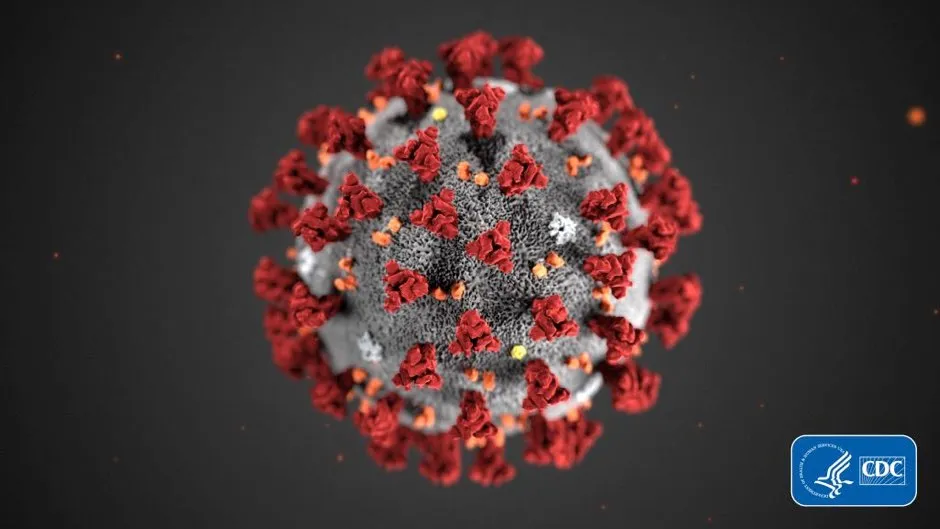Vaccines are “long shots” and people should not rely on the swift development of one for COVID-19, the Government’s chief scientific adviser has warned.
A group of Oxford University researchers will begin clinical trials for a coronavirus vaccine next week but Sir Patrick Vallance says expectations need to be tempered.
Writing in The Guardian, Sir Patrick wrote: “All new vaccines that come into development are long shots; only some end up being successful, and the whole process requires experimentation.”
“Coronavirus will be no different and presents new challenges for vaccine development,” he added.
“This will take time, and we should be clear it is not a certainty.”

His warning came as Sarah Gilbert, Professor of Vaccinology at Oxford University, said her team hopes to begin clinical trials towards the end of next week.
She acknowledged nobody can be “completely certain” that it is possible to find a vaccine for COVID-19, but the prospects are “very good”.
And she said that alongside these trials, preparations need to be made to manufacture the vaccine in large amounts.
Read the latest coronavirus vaccine news:
- Ferrets potential ally in the search for coronavirus vaccine
- Fingertip-sized coronavirus vaccine 'ready in months'
- How are scientists developing a coronavirus vaccine?
Prof Gilbert told the BBC’s Andrew Marr Show that trials need to be done to see if it is possible to find a workable vaccine.
Prof Gilbert said her team is currently waiting for final safety tests and final approvals for clinical trials to start.
In the meantime, permission has been given to recruit volunteers, take blood tests, explain the process and check their health status, she said.

Prof Gilbert said: “By the time we have all the approvals for the vaccine ready, we should have a good pool of volunteers to draw from and we should be able to get going quite quickly.”
It is difficult to know when a vaccine might be ready, Prof Gilbert said, as there are many complex stages in vaccine development.
These start with immunising healthy 18 to 55-year-olds, before moving into older age groups, looking at the safety and immune response to the vaccine.
Half of all the trial volunteers will get the new coronavirus vaccine and the other half will get a vaccine licensed to protect against meningitis. Volunteers will not know what they are given, she said.
Scientists need to be able to demonstrate the vaccine works, and that is affected by how much virus transmission there is at the time testing is happening.
Prof Gilbert also said her team has gone through stages of vaccine development that usually take five years in just four months.
Read more about the coronavirus:
- How can I protect myself from the coronavirus when shopping?
- Is hand-washing really the best thing we can do to stop the spread of COVID-19?
- Can herd immunity protect us from the coronavirus?
- Will COVID-19 become a seasonal virus?
Sir Jeremy Farrar, a member of the Government’s Scientific Advisory Group for Emergencies (Sage), said he was “optimistic” about finding a vaccine but that finding a safe and effective treatment for the latest strain was “not a given”.
He told Sky News’s Sophy Ridge On Sunday: “I hope we would have a vaccine towards the end of this year – but that’s a vaccine in a vial, it’s a vaccine that we believe to be safe, a vaccine we think might be effective.
“I think it’s crucial to realise having a vaccine in itself, in say a million doses, which you know to be safe and you believe to be effective. That is not the end game.
“The end game is making sure that it is truly effective. It’s effective in the elderly, effective in young children, effective right across the age group in all populations.
“And then you have to manufacture that in billions of doses to administer them to the world.”
Meanwhile, Sir Patrick has been put in charge of a Government taskforce which will support efforts to rapidly develop a vaccine as soon as possible.
As well as providing industry and research institutions with the resources and support, the group will review regulations to allow quick and safe vaccine trials.
How do scientists develop vaccines for new viruses?
Vaccines work by fooling our bodies into thinking that we’ve been infected by a virus. Our body mounts an immune response, and builds a memory of that virus which will enable us to fight it in the future.
Viruses and the immune system interact in complex ways, so there are many different approaches to developing an effective vaccine. The two most common types are inactivated vaccines (which use harmless viruses that have been ‘killed’, but which still activate the immune system), and attenuated vaccines (which use live viruses that have been modified so that they trigger an immune response without causing us harm).
A more recent development is recombinant vaccines, which involve genetically engineering a less harmful virus so that it includes a small part of the target virus. Our body launches an immune response to the carrier virus, but also to the target virus.
Over the past few years, this approach has been used to develop a vaccine (called rVSV-ZEBOV) against the Ebola virus. It consists of a vesicular stomatitis animal virus (which causes flu-like symptoms in humans), engineered to have an outer protein of the Zaire strain of Ebola.
Vaccines go through a huge amount of testing to check that they are safe and effective, whether there are any side effects, and what dosage levels are suitable. It usually takes years before a vaccine is commercially available.
Sometimes this is too long, and the new Ebola vaccine is being administered under ‘compassionate use’ terms: it has yet to complete all its formal testing and paperwork, but has been shown to be safe and effective. Something similar may be possible if one of the many groups around the world working on a vaccine for the new strain of coronavirus (SARS-CoV-2) is successful.
Read more:


